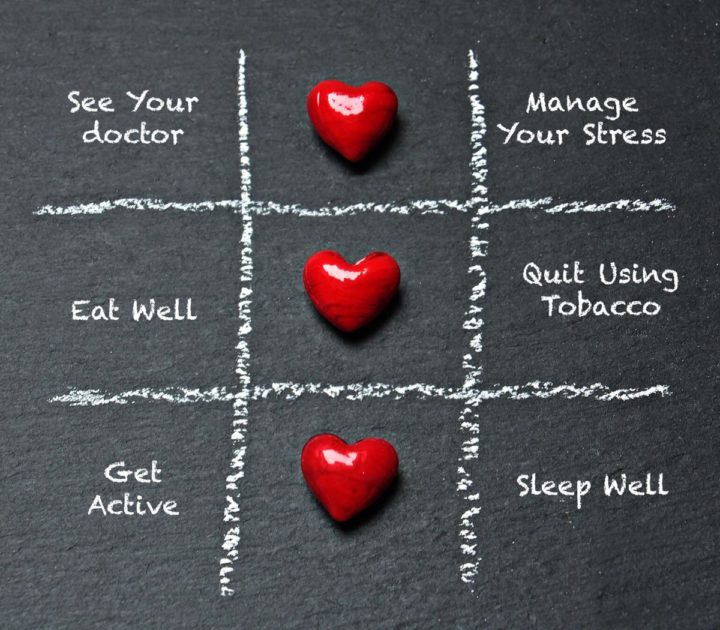Don’t go breaking your heart

Richard Smith, DO
Valentine’s Day is a holiday devoted to celebrating our most valued relationships with partners, family (furry members included) and friends with expressions of love and gratitude and maybe a thoughtful card or box of chocolates.
However, when you look deeply into your significant other’s eyes and you feel your heart flutter and skip a beat, make sure it’s love you are feeling and not atrial fibrillation.
This year for Valentine’s Day, show yourself some love by taking care of the hardest working muscle in your body: your heart.
Fortunately, getting heart healthy doesn’t have to be complicated. By adding a few positive habits, and maybe dropping a couple less positive ones, you can help to ensure that you and your heart maintain a strong relationship that stands the test of time, and, like any relationship, you get what you put into it.
Here are some recommendations for investing in a healthier heart:
See your doctor for regular checkups and monitor your blood pressure, cholesterol and blood sugar for anything out of the norm. If you do begin to experience problems, be sure to follow recommendations provided by your treatment team, including your primary care provider, cardiologist and supporting care staff. Let them know of any changes or concerns you may have.
Nutrition plays a critical role in preventing heart disease. Create a meal plan containing colorful, nutrient-rich fruits and vegetables paired with healthy fats found in fish, nuts, avocados and oils (e.g., canola, olive, grapeseed) to support heart health. Limit processed foods, added sugars and excess sodium that can contribute to heart and vascular disease, as well as weight gain, which can put additional stress on the heart.
Add more activity to your daily routine and avoid spending too much time sitting. Studies show that even with exercise, sitting down for long periods everyday can increase your risk for heart disease. While daily life encourages sitting for long stretches at a time, such as working at a computer, it helps to take short breaks, stretch and walk a couple laps around your office for at least 2 minutes every hour.
Strengthen your heart. Like all muscles, your heart grows stronger with regular exercise. Adults should get 150 minutes of moderate-intensity aerobic exercise (walking, biking, swimming) each week, 75 minutes of intense activity that gets your heart pumping (yard work, running, tennis) each week, or a combination of both. With regular aerobic exercise, your heart will become more efficient at what it does best: pumping blood to supply your body with needed resources like oxygen and nutrients.
Get enough sleep so your body can adequately recover from the day’s activities and stresses. While it might be tempting to stay up late and watch just one more episode, it is important to consistently get seven to nine hours of sleep each night. Quality sleep is critical for supporting healthy eating habits, mood, memory and, of course, organs like your heart.
Quit tobacco use. Commit to giving up unhealthy habits such as cigarette, tobacco or vape use. Smoking, tobacco use and vaping exposes you to toxic chemicals and carcinogens that can compromise your overall health, increasing your risk for heart attack, stroke and other cardiovascular issues.
Maintain mental health. Similar to your physical health, take steps to manage your mental health and emotional well-being. Develop healthy coping skills for stress, such as spending time with family and friends, taking breaks from social media (or technology in general) and listening to uplifting music and podcasts. If you are struggling to manage your stress, or experience feelings of depression, talk to your primary care provider and connect with a counselor to explore your options for treatment.
Treat yourself occasionally to some dark chocolate with almonds. Both have been shown to lower “bad” cholesterol — low-density lipoprotein, or LDL, which contributes to cardiovascular disease. But don’t go overboard! Moderation is key.
Have a happy Valentine’s Day, and remember to love yourself as you love others.
Dr. Richard Smith earned his Doctor of Osteopathy degree from the Edward Via College of Osteopathic Medicine-Carolinas campus in Spartanburg. He is a native of Florence and a member of the Student Osteopathic Medical Association, Phi Kappa Phi, American College of Physicians and South Carolina Osteopathic Society. Smith serves patients at the HopeHealth Medical Plaza in Florence.
